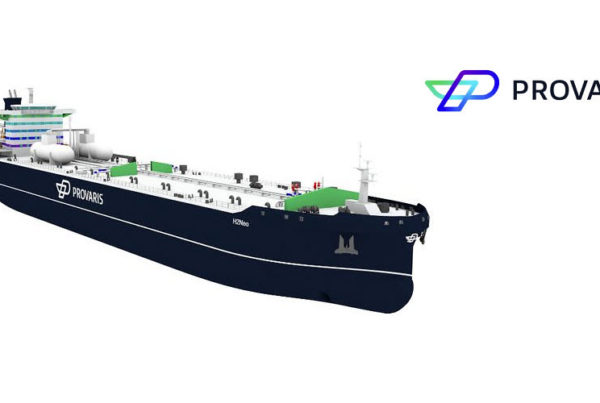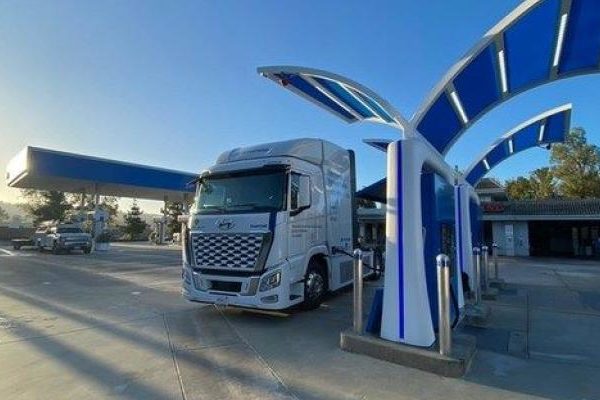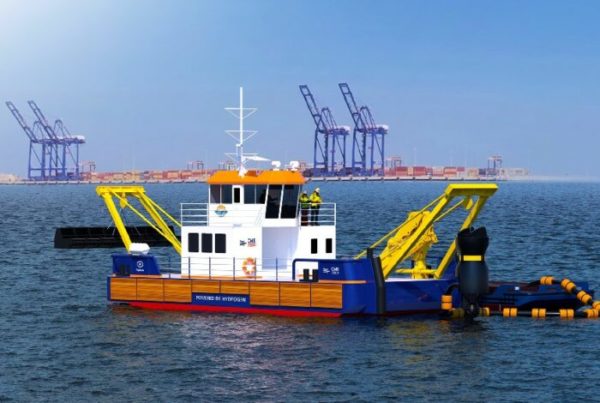
Hydrogen combustion engines produce no carbon emissions. This makes them a potential alternative to traditional diesel engines, which power most ships worldwide and emit a significant amount of greenhouse gases. As the world moves toward a more sustainable future, scientists are looking for ways to make the fishing industry friendlier to the environment. Using hydrogen as a fuel source is one possible solution.
How Green is the Fishing Industry?
The fishing industry has a long way to go in terms of sustainability. That’s due to problems like overfishing, carbon emissions from ships, habitat degradation, unwanted bycatch harming marine life and the dumping of plastic fishing gear into the ocean. Seafood is an essential source of protein for many people around the world, but the fishing trade needs to make changes in order to reduce its environmental impact.
The Proposed Vessel
Fishing is a major industry valued at $171 billion, so it’s a massive source of greenhouse gas emissions. Revolutionizing the way ships operate would help tackle climate change on a global scale. That’s why the Norwegian Company Skipsteknisk has unveiled a plan to build the world’s first hydrogen-powered fishing boat, called Loran, in hopes of supporting sustainable fishing and slashing fossil fuel use.
The ship will have a battery bank and two hydrogen fuel cells to help power it, and the hydrogen will be in a gaseous form. Although Loran will still rely partly on diesel engines — the technology hasn’t quite caught up with the Skipsteknisk’s vision yet — the ship could prove to be a groundbreaking innovation in one of the world’s oldest professions.
How Can Hydrogen Power Vehicles?
Hydrogen is the most abundant element in the universe, but it rarely occurs in its pure form on Earth. It’s usually paired up with oxygen to form water. To make hydrogen fuel, some energy input is required to split hydrogen from the molecule that contains it.
Once added to a fuel cell, hydrogen reacts with oxygen to make electricity, and the only exhaust the fuel cell generates is pure water and heat. Hydrogen takes up very little space inside a vehicle. It’s also faster to refill a hydrogen fuel cell than to charge an electric battery. With so many advantages, why hasn’t hydrogen fuel taken off yet?
Right now, hydrogen is still costly to produce. There needs to be more refueling infrastructure in place to support hydrogen-powered vehicles. And, most notably for innovators looking for solutions to the climate crisis, hydrogen fuel requires a lot of energy to generate — and it largely comes from fossil fuels. Producing sustainable hydrogen would require the use of purely renewable energy sources like wind and solar power, which is currently much more expensive than using natural gas.
Bringing Sustainability to Seafood
For now, though it might take the wind out of Skipsteknisk’s sails, hydrogen-powered fishing vessels are still stuck on the drawing board. But hydrogen looks promising as a future fuel source for the fishing industry.
Even if it’s used as a stopgap measure until engineers develop a more sustainable type of ship, hydrogen power could substantially reduce fossil fuel usage. Hopefully, the Loran is just the first model in a long line of climate-friendly fishing boats.


Jane Marsh, Contributor
The views and opinions expressed herein are those of the authors and do not necessarily reflect the official policy or position of Fuel Cells Works, its directors, partners, staff, contributors, or suppliers. Any content provided by our contributors or authors are of their own opinion and are not intended to malign any religion, ethnic group, club, organization, company, individual or anyone or anything.
Read the most up to date Fuel Cell and Hydrogen Industry news at FuelCellsWorks




